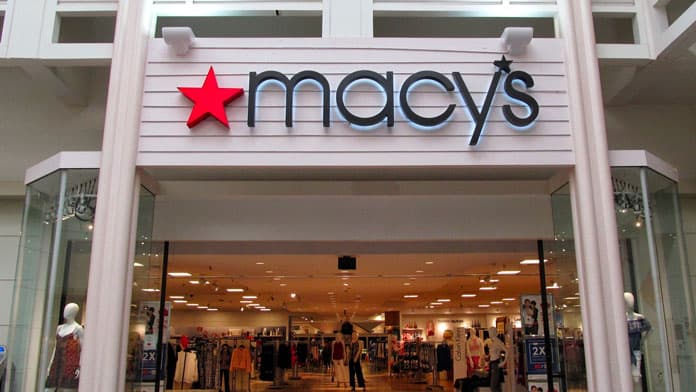Department Stores

What Are Department Stores?
Department stores are large establishments which sell an assortment of goods under one roof. Department stores provide customers with numerous advantages, including convenience, central location and excellent customer service.
These stores also provide services like free home delivery and financing, entertainment, knowledge rooms and restaurants – among others.
They offer a variety of goods
Department stores are retail establishments that specialize in selling an extensive array of goods. This may include apparel and accessories for women, men, children and adolescents as well as beauty products; yard goods and household textiles; furniture, electrical appliances and food; gift wrapping services, alterations services and delivery options; department stores are often divided up based on what type of merchandise they carry or price point they fall into; in the US this includes discount, general merchandise, fashion or high fashion and specialty.
Department stores offer many advantages to their customers. Their wide range of goods and brands makes for convenient shopping trips. Plus, bulk purchases may qualify for discounted pricing!
departmental stores enjoy an excellent reputation and are usually busy places. Their central locations, attractive window displays, comforts and amenities, as well as intense advertising draw customers in droves compared to ordinary shops. Furthermore, department stores possess substantial capital resources which they use for marketing activities that increase sales.
Department stores that buy directly from manufacturers often enjoy special concessions and save expenses on middlemen; as a result, departmental store prices for goods tend to be significantly less than other stores’ charges.
However, departmental stores do have their drawbacks as well. Perhaps the biggest of which is lack of personal attention; due to their large-scale operations it can be challenging for them to provide enough personalized customer care. Another is higher operating costs which make department stores less appealing to people with lower incomes.
Departmental stores face an increased risk of dead stock, and their expenses on advertising and salaries limit profits. Furthermore, such businesses require substantial capital outlay while being unsuitable in developing nations where economic development comes first and investment in consumer goods is discouraged.
They have a high level of customer service
Department stores are retail establishments that sell a wide range of goods under one roof, including ready-to-wear apparel, beauty products, household textiles, home appliances, furniture and hardware. A department store also offers services such as gift wrapping, alteration and personal shopping which may come at discounted rates during sales and holidays; its convenient locations make finding one easier too!
Modern department stores are massive, well-decorated and provide unparalleled customer service. Their staff are knowledgeable about all product lines available and can assist customers in finding what they are searching for quickly and easily. Furthermore, many offer generous returns policies making them popular choices among consumers.
However, running a departmental store is much more costly than managing one selling a single product or service. More money must be spent on rent, advertising, upgrading facilities and maintaining larger supply chains – so it’s vital that stores choose their location wisely before investing wisely in building upgrades and investment in themselves.
Department stores have long been an essential shopping resource, carrying everything from feather duster refills and tailor-made suits to perfume. But as retail has evolved and trends change, department stores are becoming more artfully curated than ever, featuring buzzy brand activations campaigns, tech-savvy spaces and independent business concessions – such as in Minneapolis where Larissa Loden jewelry and Pig’s Eye Pottery products have found a home inside their 14-floor former Marshall Field’s store.
Department stores also provide exceptional customer service, including flexible returns policies and an array of merchandise to meet everyone’s needs. Furthermore, department stores carry many hard-to-find brands, making them great places for finding gifts for friends and family members.
If your small company wants to sell its product in department stores, partnering with a consumer product broker is often the best approach. These firms specialize in marketing new products to major department stores while helping you negotiate contracts and secure better prices for the item in question.
They have a central location
Department stores are large-scale retail establishments that sell an assortment of goods under one roof. Each department specializes in one type of merchandise or business and are usually staffed by employees with various jobs; department heads oversee and coordinate operations while also providing customer service and accounting. Furthermore, department stores often offer discounts and promotions regularly in order to draw in new customers, while advertising their products via large screen display within their store and therefore increasing sales and profits.
Modern department store concepts have gained in popularity due to their convenience. Goods are displayed neatly, making them easier to locate. This enables stores to save on advertisement costs and make greater profits. Furthermore, warehouse items can easily be transported into store ensuring an increase in turnover rates which reduce cost per unit sold and boost profit margins. Furthermore, departments are staffed with trained personnel armed with various skills which create customer satisfaction and help build brand recognition.
Department stores come in all forms – from high-end boutiques to discount departmental stores – offering apparel, jewellery and cosmetics, do it yourself products, furniture and home furnishings, appliances, electronics, sporting goods toys photo equipment hardware. Some form part of an existing chain while others operate independently.
Some departmental stores have their own brand of goods that fall under one of several labels, for instance a store dedicated to one type of footwear would be considered a shoe departmental store; similarly clothing, stationery and cosmetics stores could fall into these categories as well.
Another type of departmental store is an outlet store owned by one brand. These shops typically offer more selection and discounts than traditional departmental stores and make for an ideal shopping option when seeking to acquire the latest offerings at an affordable price. Other forms of departmental stores specialize in certain product categories or serve the needs of children specifically.
They have a high markdown rate
Department stores offer shoppers easy access to a wide variety of products under one roof, making shopping convenient and affordable. Many department stores also provide discounts or sales that help their customers save money when making their purchases, making them a top shopping choice among many people.
Departmental stores not only offer an impressive range of goods, but they also offer various services that benefit customers like free home delivery and after-sales support, which are especially useful if products become defective. Department stores also employ staff that can answer customers’ inquiries over the phone and in person; this helps ensure customer satisfaction and reduce complaints.
However, department stores with high markdown rates face risks as a result of their large inventories they maintain. Due to price fluctuations or fashion shifts affecting specific items in stock, and due to deadstock becoming an ever-present risk. Furthermore, high employee salaries and advertising expenditure can limit profit margins significantly.
Department stores are massive and costly businesses, requiring substantial investments as well as costs associated with staffing, advertising and window displays. Their establishment costs are considerably greater than small retail shops which is why their products carry higher price tags.
Departmental stores must regularly purchase merchandise to keep their stock fresh, but this may increase the risk of dead stock, particularly among fashion goods. Furthermore, price fluctuations and taste shifts may also result in huge financial losses for these stores; not to mention theft and fraud risk that can greatly reduce profits.
North America holds an over 47% share in 2021’s department store market, mainly due to rapid urbanization and well-established key players within its borders. However, department store survival may be in jeopardy due to an increasing popularity of online shopping.
Here a are a few blogs that may interest you!
1. Product Distributors – How to Work with Distributors!
2. How to Sell to Macys – Quick Tips!

Step-by-step training on how to sell to retail chains!
We explain exactly how to do that and how to get started today. I’ve taught over 100,000 of companies over the years across the globe on how to get your products to the stores. And so we’re here to support you. Or please subscribe to our Youtube channel and or be on the lookout for additional training that we create.
We are here to expedite the process of generating revenue with your physical products and that’s what we’re all about. Take a look at our advanced training, live events, certification programs and so much more.
In this training, I will discuss some of the things to think about when approaching a retailer to sell your products and become a vendor. Hope it helps! 🙂
Karen Waksman,
Retail MBA
Questions? Contact Us!
1-855-Retail-2 (Call or Text)
Email: info@retailmba.com
Retail MBA provides a step-by-step formula on How to Sell to Major Retailers, Online Retailers, Smaller Retailers, Catalogs and More. No Experience Required! These solutions continue to convert for clients year-over-year! These are Time-Tested and Proven Strategies that we utilize ourselves when going after stores! Everything we teach, we test. Want access to these formulas? ANY one of our programs and coaching systems gives you access to them now. With that said…
Here are 5 Easy Ways to Work with Us:
1) Free Training – If You Would Like to Join Our Next FREE Webinar Training Called “Retail Chain Store Secrets – How to Sell to Major Retail Chains. No Experience Required” Then Sign Up NOW To Learn All About Selling into Retail Chains By Clicking Here!
2) Retail MBA Year Long Coaching and Training System – Our Year Long Coaching and Training System with Karen Waksman is POWERFUL! This is our most popular training and coaching system! We walk you through how to approach, pitch and sell to retail chains and we coach you along the way! Join us by Clicking Here!
3) Masterclass Intensives – Want to Join our Next 4 Week Elite Retail MBA Masterclass Intensive? These Intensives Are EPIC for people who Love Fast Paced Learning – Homework, Retail Coaching, Developing Your Strategy, Buyers Contacts and More! These Events Are Held Every Quarter. Join us by Clicking Here!
4) Done-for-You Program – If You Want Karen Waksman and Her Team to Reach Out to Your Top Dream Retail Chains On Your Behalf – And You Have a Retail-Ready Product, Check Out our Epic Done-For-You Service by Clicking Here!
5) In Person Events – If You Want to Learn LIVE and Meet Karen Waksman in Person at Our Next “America’s Next Retail Product: LIVE Event with Other Like-Minded Individuals in Beautiful San Diego, CA! We Would LOVE to Have You Join Us by Clicking Here!

